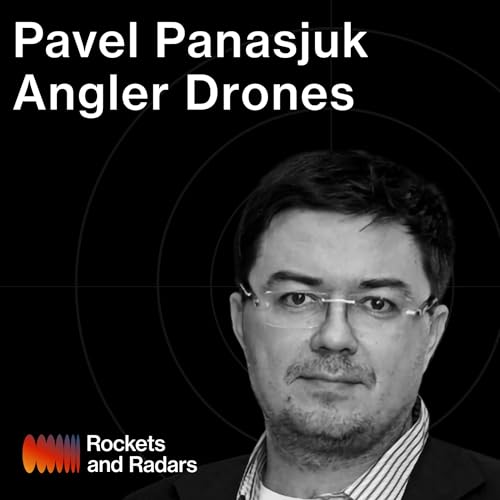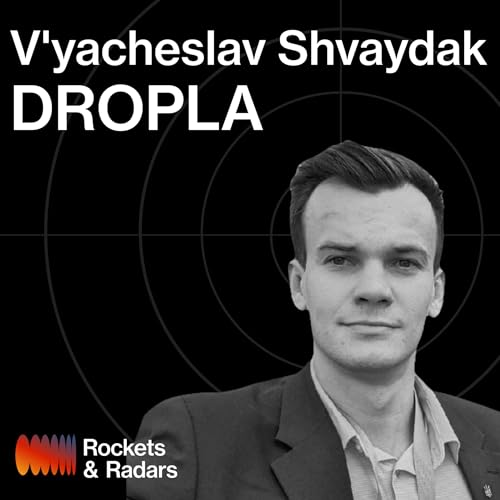Lars Alminde co-founded GomSpace in 2007, one of Europe's first New Space companies, at a time when ESA openly dismissed their technology as "not something we're ever going to use." Fast forward 18 years, ESA is now a customer of GomSpace, and Lars has lived through nearly every crisis a space founder can face. He stepped down as CEO after seven years, watched the company go public with a 6x stock surge, then saw it nearly die twice - once from cancelled contracts in 2019, then again from a devastating stock crash in 2023 - before reaching profitability in 2025.
In this episode, Lars shares the unfiltered reality of building in European space: how university consulting revenue from day one kept them alive, why stepping down as founding CEO was his best strategic move, and what he learned from surviving 2 decades in one of the world's most unforgiving industries.
-----------------------------------------------
Chapters:
(00:00) Introduction
(02:27) How a Student Project Became a Career
(04:11) Two Satellites Failed & He Still Started a Company
(08:16) "We'll Never Use This" - ESA Before Signing Their Contracts Years Later
(15:24) First Success: GOMX-1 Changes Everything
(18:29) Stepping Down as CEO After 7 Years
(23:31) Going Public: The IPO That Changed Everything
(28:47) First Near-Death: Major Contracts Cancelled
(34:00) Second Near-Death: Stock Crashes 90%
(37:02) New CEO, New Strategy: From Growth to Profitability
(42:39) 18 Years to Profitability
(44:26) The One Lesson From Years of Experience
(45:32) Rapid Fire Questions
-----------------------------------------------
Takeaways:
1) Plan your CEO exit before burnout forces it - "I couldn't keep working 150% for all of my career. And when you're the CEO, there's a lot of things you have to do because you're the CEO, which distracts you from where you can make your most important contributions." Lars stepped down after 7 years when he became a father, recognizing he needed to shift from CEO duties to his technical core strengths.
2) If you're even thinking about stepping down, take it seriously - "If as an early stage CEO, you're even thinking about it, then you know there's something to take serious. Be curious, explore your feelings and your priorities. Do I need to be in this company for another three years? At some point, you have to make your career plan or you just get overwhelmed by all of the work."
3) During crises, protect your personal life or you'll suffer constantly - "If everything you have is the business and the business suffered, then you suffer all of the time. If you also have a family, take your mountain bike in the forest on the weekend. If you have other interests, then you can distance from it and see the business is suffering, I'm doing what I can to fix it, but I'm okay."
4) Radical transparency with employees helps everyone plan better - "The more people know, the better they are able to add and plan." After nearly dying twice, GomSpace now emphasizes extreme transparency.
5) Stop selling your tech stack, start selling outcomes - "I think for most new technology it's about transitioning from being excited about a technology to have applications and customers who are excited about what that technology can do for them."
6) Find real end users early - "Think beyond the grants and the government subsidies and think about what's the real application this technology can provide and make sure to get in contact with that group of end users as early as possible."
7) Think in multiple scenarios, but don't focus on failure - "When you need to make that big adjustment, you have to think in multiple scenarios because there always are multiple scenarios. One of them is not making it, but it's just one of many scenarios.
8) Success is about staying in the game long enough to catch opportunities. In the early years, Lars didn't know on the 20th of each month how he'd pay salaries by the 30th - but he always found a way to stay alive another month.
 2026/02/2058 分
2026/02/2058 分 1 時間 51 分
1 時間 51 分 1 時間 9 分
1 時間 9 分 1 時間 14 分
1 時間 14 分 1 時間 13 分
1 時間 13 分 50 分
50 分 52 分
52 分 1 時間
1 時間
